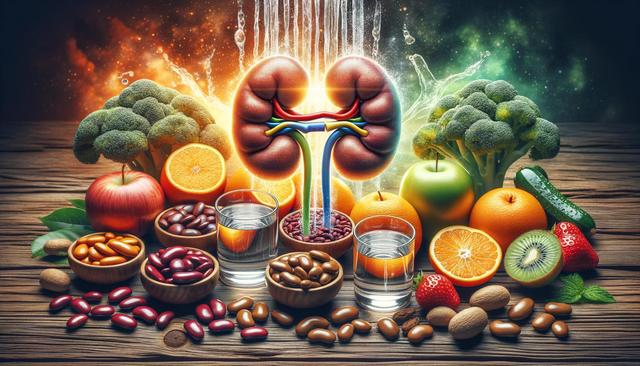Understanding Kidney Function and Risk Factors
The kidneys play a vital role in maintaining overall health by filtering waste products, balancing electrolytes, and regulating blood pressure. When kidney function declines, it can lead to chronic kidney disease (CKD), which may eventually require dialysis if not managed properly. Understanding the common risk factors and early signs of kidney decline is essential for prevention. These include high blood pressure, diabetes, family history of kidney disease, and prolonged use of certain medications such as NSAIDs. Recognizing symptoms like swelling in the legs, fatigue, and changes in urine output can prompt early medical intervention, which is crucial for slowing disease progression.
Maintaining regular check-ups and monitoring kidney function through blood and urine tests can help identify issues early. Being informed about your glomerular filtration rate (GFR) and creatinine levels can also guide decisions about lifestyle changes or treatment plans. Those at higher risk should be especially diligent in tracking these indicators and discussing them with healthcare providers.
Nutrition and Hydration for Kidney Support
Diet has a significant impact on kidney health. A kidney-friendly diet focuses on reducing the workload of the kidneys while providing essential nutrients. Individuals with reduced kidney function often need to limit sodium, phosphorus, and potassium intake while maintaining adequate protein levels based on their doctor’s recommendations. A few dietary tips for kidney support include:
- Reducing salt intake by avoiding processed foods and using herbs for flavoring
- Choosing fresh fruits and vegetables that are lower in potassium
- Limiting dairy products and colas, which are high in phosphorus
- Monitoring protein consumption to avoid overburdening the kidneys
Proper hydration is equally important. Drinking enough water helps the kidneys flush out toxins efficiently, but the amount needed can vary based on individual health conditions. In some cases, people with kidney disease might need to limit fluid intake, so it’s important to follow personalized medical guidance.
Exercise and Weight Management
Regular physical activity can help maintain healthy blood pressure and blood sugar levels, both of which are critical in preserving kidney function. Exercise also supports weight management, which reduces the risk of developing type 2 diabetes and hypertension—two major contributors to kidney disease. Options for kidney-friendly physical activity include:
- Walking or light jogging
- Swimming or water aerobics
- Yoga and stretching exercises
- Strength training with light weights
It’s advisable to start slowly and increase intensity gradually under medical supervision. Consistency is more important than intensity, especially for those with existing kidney concerns. Maintaining a healthy body mass index (BMI) can significantly reduce stress on the kidneys and improve overall metabolic health.
Managing Chronic Conditions Effectively
Controlling underlying health conditions is one of the most effective ways to protect kidney function. High blood pressure and diabetes are the leading causes of kidney damage, so managing these conditions with the help of healthcare professionals is essential. Key strategies include:
- Taking prescribed medications consistently
- Monitoring blood pressure and blood sugar levels regularly
- Attending routine medical appointments for ongoing assessment
- Adopting a heart-healthy diet and staying active
In addition to medical management, stress reduction and mental well-being play a role in overall health. Chronic stress can negatively affect blood pressure and glucose control, making relaxation techniques and counseling beneficial for long-term kidney preservation.
Limiting Toxins and Avoiding Harmful Substances
Kidneys are highly sensitive to toxins, so limiting exposure to harmful substances can help preserve their function. Over-the-counter painkillers, certain antibiotics, and contrast dyes used in imaging tests can strain the kidneys, especially when used frequently or in high doses. Before taking any new medication or supplement, it’s wise to consult a healthcare provider. Additional precautions include:
- Avoiding smoking and limiting alcohol intake
- Using natural cleaning products to reduce chemical exposure
- Staying informed about environmental toxins in water or food sources
- Being cautious with herbal remedies, as some may harm kidney tissue
Chronic exposure to these substances, even in small amounts, can accumulate over time and contribute to kidney damage. Making conscious choices about what enters your body and environment is a valuable strategy for long-term kidney care.


